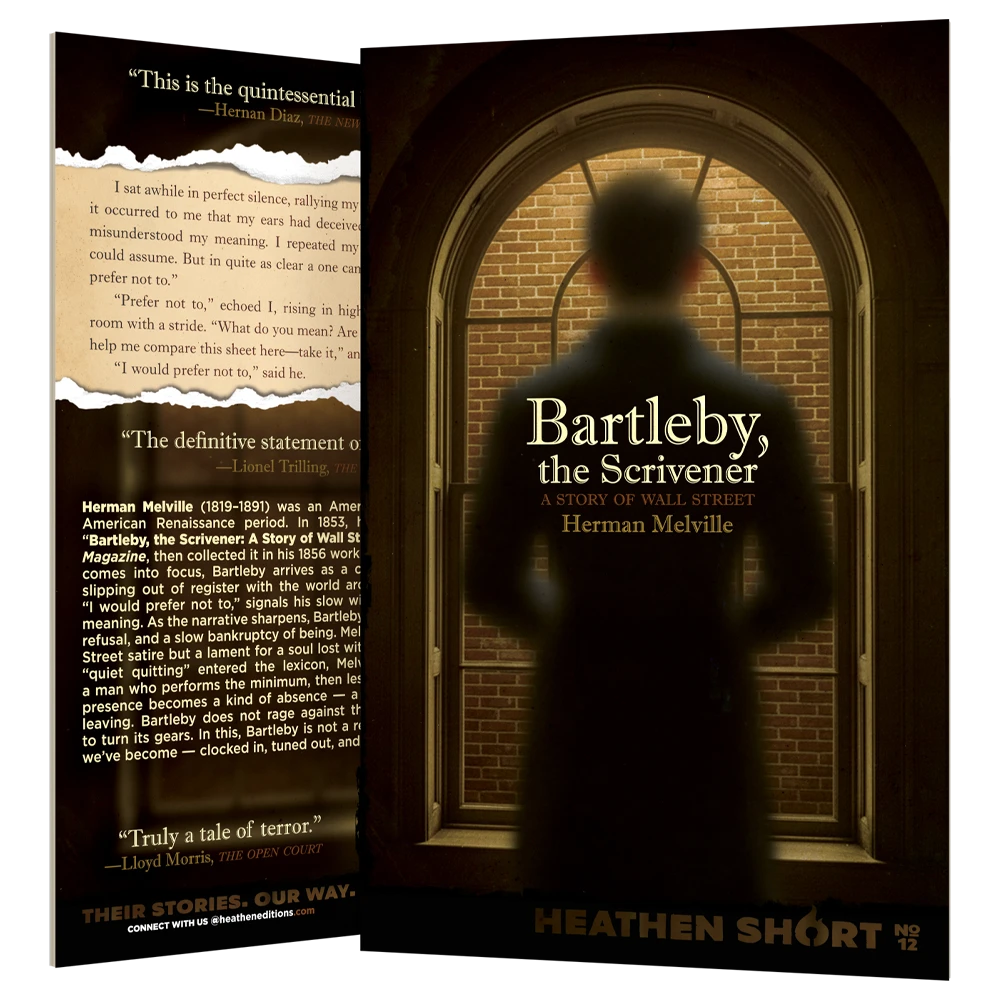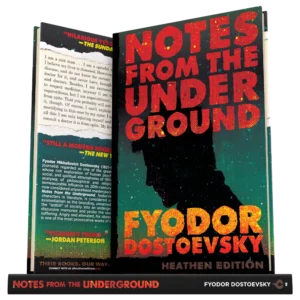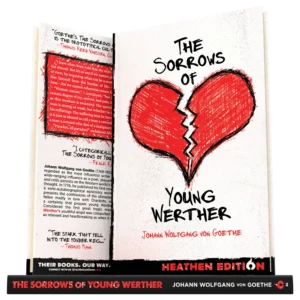No products in the cart.

Bartleby, the Scrivener
Heathen Short #12
Author
Herman Melville
Translator
First Edition
1853
Heathen Short
January 2026
Refreshed
Pages
56
Heathen Genera
Existentialicious
ISBN
979-8-90075-012-5
I sat awhile in perfect silence, rallying my stunned faculties. Immediately it occurred to me that my ears had deceived me, or Bartleby had entirely misunderstood my meaning. I repeated my request in the clearest tone I could assume. But in quite as clear a one came the previous reply, “I would prefer not to.”
“Prefer not to,” echoed I, rising in high excitement, and crossing the room with a stride. “What do you mean? Are you moonstruck? I want you to help me compare this sheet here—take it,” and I thrust it toward him.
“I would prefer not to,” said he.
Herman Melville (1819–1891) was an American author and poet of the American Renaissance period. In 1853, he serialized his short story “Bartleby, the Scrivener: A Story of Wall Street” in two parts in Putnam’s Magazine, then collected it in his 1856 work The Piazza Tales. As the story comes into focus, Bartleby arrives as a cipher — silent, spectral, and slipping out of register with the world around him. His famous refrain, “I would prefer not to,” signals his slow withdrawal from the balance of meaning. As the narrative sharpens, Bartleby blurs: fading into abstraction, refusal, and a slow bankruptcy of being. Melville’s tale is not merely a Wall Street satire but a lament for a soul lost within it. Long before the phrase “quiet quitting” entered the lexicon, Melville summoned its phantom: a man who performs the minimum, then less, then nothing, until even his presence becomes a kind of absence — a man who disappears without leaving. Bartleby does not rage against the machine; he simply ceases to turn its gears. In this, Bartleby is not a relic but a prophecy: the ghost we’ve become — clocked in, tuned out, and complicit in our own erasure.
Test Your Might
Available on backorder
OTHER RETAILERS
Rate & Shelve It
"The definitive statement of social negation beyond which no modern despair has gone."
Lionel Trilling
The Reporter
Heathenry
Contents
Praise
Details
Heathenry
Arriving Soon-ish! Available NOW for pre-order (backorder) — expected to ship by late January.
Contents
Heathenry: Thoughts on the Text
“Bartleby, the Scrivener: A Story of Wall Street“
“Bartleby, the Scrivener: A Story of Wall Street“
Praise
“Melville was a master of the short story.” —Howard P. Vincent, The Philadelphia Inquirer
“Those who have not yet known the powerful imagination and flashes of true Melville genius in . . . ‘Bartleby, the Scrivener’ have a deep and rewarding experience in store.” —The Courier-Journal
“Herman Melville’s tale of the essential loneliness and interdependence of men.” —The Rock Island Argus
“A rich piece of mystification.” —The Hampshire Advertiser
“Admirably told.” —The Buffalo Commercial
“‘Bartleby, the Scrivener,’ one of the great short stories in the language.” —Newsweek
“This is the quintessential New York story because it is about a lovely, unclassifiable weirdo who is always on the verge of being crushed by an ever-expanding city ruled by profit.” —Hernan Diaz, The New York Times
“The definitive statement of social negation beyond which no modern despair has gone, it is not pride that motivates the terrible ‘I prefer not to,’ nor even a disgust with social process, but simply an ultimate, invincible fatigue.” —Lionel Trilling, The Reporter
“Melville brings the same exasperated sensitivity to this small tale that he brought to his great sea stories.” —The Commercial Appeal
“‘Bartleby, the Scrivener,’ a classic approaching in conception Shakespeare’s Richard the Second; and rivaling Gogol’s ‘The Overcoat’ and Maupassant’s ‘A Piece of String’ . . . Bartleby is truly a tale of terror; terror of atmosphere; terror of ideas; for it is that most appalling of tragedies; the spectacle of a dead Will.” —Lloyd Morris, The Open Court
Details
Bartleby, the Scrivener: A Story of Wall Street
Heathen Short #12Published: January 2026
Format: Paperback
Retail: $7.95
ISBN-10:
ISBN-13: 9798900750125
Dimensions: 8.5 x 5.5 x 0.15 inches
Weight: 3 oz
Cover: Matte Finish
Interior: Black & White on Cream Paper
Pages: 56 (+2 POD)
Language: English
Annotations: 69 Footnotes
Illustrations: 4
- Title Page
- Heathenry Flame
- Honorary Heathen Headshot: Herman Melville
- End Title
- Fiction /
- Fiction /
- Fiction /
The Heathen Newsletter
Want to be kept in the loop about new Heathen Editions, receive discounts and random cat photos, and unwillingly partake in other tomfoolery? Subscribe to our newsletter! We promise we won’t harass you – much. Also, we require your first name so that we can personalize your emails. ❤️
@heatheneditions #heathenedition
Copyright © 2026 Heathen Creative, LLC. All rights reserved.




